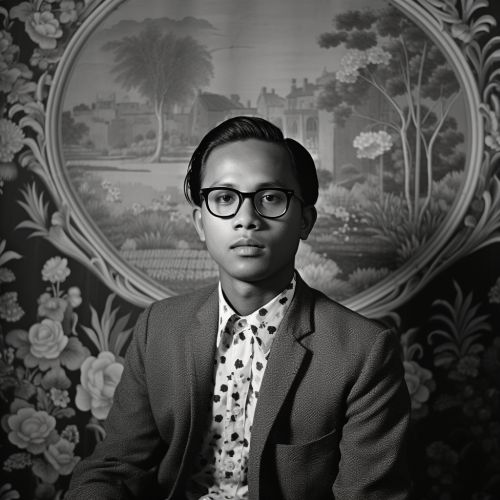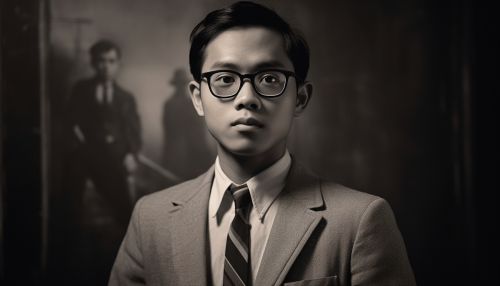U Thant
Early Life
U Thant was born on 22 January 1909 in Pantanaw, Burma, to a moderately wealthy family of landowners and rice merchants. His parents were Po Hnit and Nan Thaung. His father, Po Hnit, had been a civil servant in the British colonial government. Thant was the youngest of four children and was given the name "Thant" by his parents, which is not a family name but a common Burmese name.
Education
Thant received his early education at the National High School in Pantanaw. He was known as a diligent student and was often top of his class. He developed an early interest in Buddhist literature and later in world history and international politics. Thant moved to Rangoon (now Yangon) in 1926 to attend university. He studied at Rangoon University (now the University of Yangon), where he received a Bachelor of Arts degree in English Literature, Modern History, and Political Science.
Career in Burma
After graduating from university, Thant returned to Pantanaw and worked as a school teacher at the National High School. He was a respected figure in the community and was known for his commitment to education. In 1931, he married Daw Thein Tin. The couple had two children.
In 1942, during World War II, Burma was occupied by the Japanese. Thant served in the educational department of the administration set up by the Japanese. After the war, he worked in the post-war interim government.
In 1948, Burma gained independence from Britain. Thant was appointed as secretary to the government in the Ministry of Information. His work in the ministry was recognized for its efficiency and integrity.
In 1952, Thant was appointed Secretary to the Prime Minister, U Nu. He played a crucial role in the administration, working on foreign policy and educational reform. He also served as the secretary at the 1955 Bandung Conference, a meeting of Asian and African states organized by Indonesia, Burma, Pakistan, Ceylon (Sri Lanka), and India.
United Nations Career
In 1957, Thant was appointed as Burma's representative to the United Nations (UN). He was involved in several significant UN resolutions, and in 1961, following the death of Secretary-General Dag Hammarskjöld in a plane crash, Thant was appointed Acting Secretary-General. He was officially appointed as the third Secretary-General of the UN on 30 November 1962.
During his tenure, Thant dealt with several major international crises, including the Cuban Missile Crisis, the Vietnam War, and the Six-Day War in the Middle East. He was known for his quiet diplomacy and his commitment to peace. Thant served two terms as Secretary-General, retiring in 1971.
Later Life and Death
After retiring from the UN, Thant returned to Burma. He lived a relatively quiet life, although he was occasionally consulted on matters of national and international importance. He died on 25 November 1974. His death was widely mourned, and his funeral was attended by a large number of international dignitaries.


Legacy
U Thant is remembered as a dedicated public servant both in his home country of Burma and on the international stage. His tenure as UN Secretary-General was marked by his commitment to peace and his ability to mediate in times of crisis. He is regarded as one of the most influential figures in the history of the UN.
